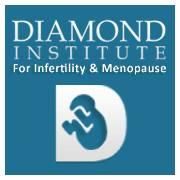4 FAQ About Menopause

Every woman goes through menopause, a normal condition that occurs in their late 40s to early 50s. Although some well-known symptoms of menopause are no longer getting monthly menstrual periods and infertility, this condition triggers many different changes in a woman’s body. Understanding some of the facts about menopause can help you prepare for this physical change and know when to get help from your doctor.
What You Should Know About Menopause
What is menopause?
The term menopause actually refers to a specific point in time when you have not had a menstrual period for at least 12 months, indicating a drop in estrogen levels and that your ovaries are no longer producing eggs. During perimenopause, which may start several years before menopause, estrogen production decreases and the physical signs of menopause begin. These symptoms usually ease after menopause, but the lack of estrogen increases the risk of other health issues during this time.
What are the symptoms of this condition?
 The most obvious sign is a change to the menstrual cycle when periods become irregular, lighter, and shorter until stopping entirely. Other common symptoms of perimenopause include hot flashes, mood changes, including depression and irritability, and headaches. Many women also experience trouble sleeping, a lack of interest in sex, vaginal dryness, and fatigue.
The most obvious sign is a change to the menstrual cycle when periods become irregular, lighter, and shorter until stopping entirely. Other common symptoms of perimenopause include hot flashes, mood changes, including depression and irritability, and headaches. Many women also experience trouble sleeping, a lack of interest in sex, vaginal dryness, and fatigue.
Are there treatments for this body change?
A drop in estrogen production not only causes infertility, but the related symptoms can be so challenging that they disrupt daily life. Your doctor may prescribe hormone therapy to help reduce hot flashes, vaginal dryness, or pain during sex. Other treatments may include antidepressants to help with mood changes and depression, sleep aids, and osteoporosis medication to help keep your bones strong. Although this normal transition causes infertility, your doctor may recommend you still use birth control for up to a year post-menopause to prevent unintended pregnancy.
Are there long-term effects of menopause?
While many women welcome menopause because they no longer need to worry about periods or birth control, this condition does increase the risk of developing other health issues. Weight gain is often an issue because menopause causes changes in how your body uses energy. Bone density can also decrease, increasing the risk of fractures, and the risk of heart disease, vision problems, and Alzheimer’s can also increase. Be sure to discuss your concerns with your doctor and follow a treatment plan to reduce your risks.
If you suspect you are transitioning to menopause, the compassionate doctors at Diamond Institute for Infertility & Menopause, in Millburn, NJ, will provide guidance through every step of the way. For more than 40 years, Dr. Matan Yemini and Dr. Ndidimaka Onwubalili have helped women relieve menopause symptoms. To schedule an appointment, call (973) 761-5600 or visit their website to learn more about their services.
About the Business
Have a question? Ask the experts!
Send your question

